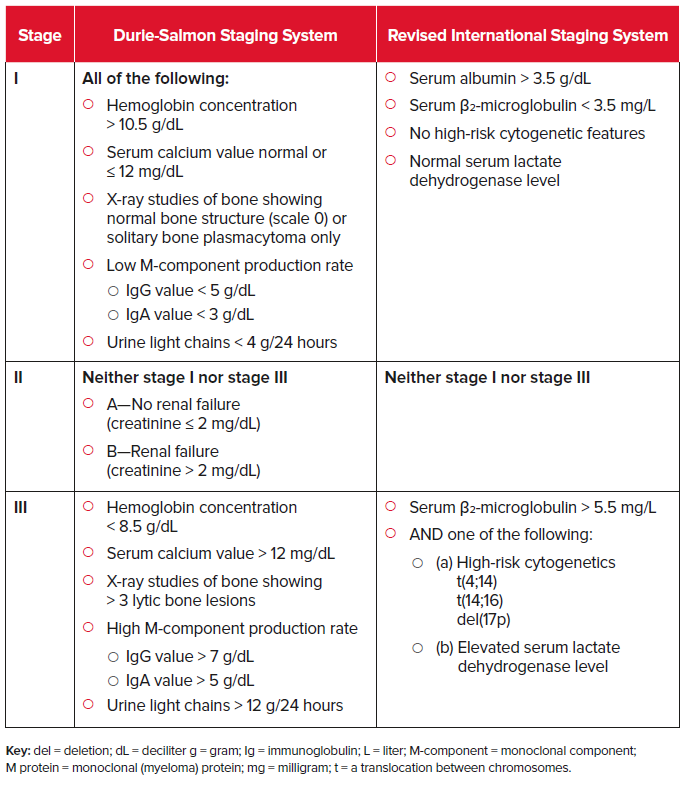Doctors use imaging and laboratory test results and bone marrow examination findings to determine the extent of disease. This determination is called “staging.” Staging helps your doctor predict the myeloma's progression and develop a treatment plan.
Doctors use one of two staging systems: the Durie-Salmon Staging System or the newer International Staging System. Doctors also use the terms smoldering myeloma or asymptomatic myeloma to describe the disease when its presence is minimal with little evidence of progression.
Durie-Salmon Staging System
The Durie-Salmon Staging System calculates the myeloma stage by measuring
- Hemoglobin concentration
- Level of blood calcium
- Presence of bone lesions on imaging studies to determine the extent of the myeloma
- Amount of the M protein in the blood and urine
- Level of kidney function.
International Staging System
The International Staging System calculates the myeloma stage by measuring levels of two proteins in the blood:
- Beta2-microglobulin
- Albumin
The ISS was recently revised to include an elevated lactate dehydrogenase (LDH) level or the presence of high-risk cytogenetic abnormalities to create a more powerful prognostic index.
In treatment planning, doctors also consider other factors. The general health of the patient, the presence of other significant diseases such as heart disease or diabetes, the presence of kidney disease, other findings that influence the patient’s tolerance to treatment, and the risk of treatment-induced difficulties are all considered when doctors are making treatment decisions, including whether to treat and what approach to take.
Related Links
- Download or order The Leukemia & Lymphoma Society's free booklet, Myeloma.


